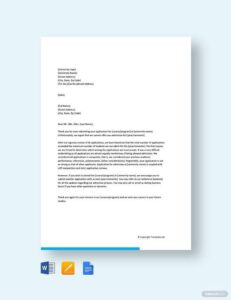How to Defer Admission in Nigeria University or Polytechnic
How to Defer Admission in Nigeria University or Polytechnic
So, you got the admission. Congrats! But… what if you’re not ready to resume?
Maybe it’s money, a health issue, or something else. This is where learning how to defer admission in a Nigeria university or polytechnic becomes a lifesaver.
Deferment simply means you are asking the school to “hold” your admission spot for you until the next academic session. It’s a formal pause button.

What Does it Really Mean to Defer Admission?
Let’s be clear: deferment is not the same as rejecting your admission.
When you reject an offer on JAMB CAPS, that spot is gone. (By the way, if you’re at that stage, you should check our guide on how to accept or reject admission on JAMB CAPS).
Deferring means you want the admission, but you need to start one year later. You are officially telling the school, “Please, I’m coming, just wait for me!”
Valid Reasons Schools Actually Accept for Deferment
You can’t just defer because you “don’t feel like it” or want to chill at home. Schools need a serious, provable reason.
While every institution has its own rules, these are the ones they almost always listen to:
- Financial Hardship: This is the big one. Maybe school fees aren’t complete, or your sponsor suddenly had an issue. This is a very common and valid reason in Nigeria.
- Medical/Health Challenges: If you are seriously ill (God forbid) and have a detailed doctor’s report to prove it, this is a very strong reason.
- Family Emergency/Bereavement: A major, disruptive family crisis or the loss of a close parent or guardian can be a valid reason.
- Accident/Injury: If you were involved in an accident that affects your ability to travel or study.
A reason that often gets rejected? Trying to defer a polytechnic admission because you’re “waiting for university admission.” Deferment isn’t designed for you to “shop around.”
The Step-by-Step Guide: How to Defer Your University or Polytechnic Offer
Okay, so you have a valid reason. What next? Don’t just sit at home and assume. You have to act fast, usually during the registration/clearance period for new students.
Step 1: Accept Your Admission FIRST This is the most important step. You cannot defer an admission you haven’t accepted. Go to your JAMB CAPS portal and accept the offer. You must also accept it on the school’s portal if they have one.
Step 2: Pay the Acceptance Fee Yes, in most (if not all) schools, you must pay your acceptance fee. This proves you are serious about the admission. Think of it as a down payment on your spot. Forfeiting this fee is often the penalty for not following through.
Step 3: Write a Formal Deferment Letter This is where you state your case. Address it to the school’s Registrar. Be polite, formal, and direct.
- State your name, JAMB registration number, and the department you were admitted into.
- Clearly state your reason for wanting to defer.
- Formally request to defer your admission for one academic session.
Step 4: Attach Your Evidence (Proof) This is critical. Don’t just say you have a problem; show them.
- Financial issues? Attach a short, signed letter from your parent or guardian explaining the situation.
- Health issues? You must attach a signed and stamped medical report from a government-recognized hospital.
- Bereavement? A copy of the death certificate might be required.
Step 5: Submit Everything and Follow Up Take your letter and all your evidence to the Registrar’s office at the school. You might be directed to your Head of Department (HOD) or Faculty Dean first. Follow the official chain of command.
Make a photocopy of everything for yourself before you submit the original. After submitting, ask when you should check back for the approval.

How Long Can You Defer an Admission?
This is simple and non-negotiable for almost every Nigerian institution.
You can only defer an admission for one academic session (one year).
You can’t defer for two or three years. If you defer for one year and still can’t resume, you will, unfortunately, have to forfeit the admission and write JAMB again.
The Big Fear: Does Deferring Hurt My Chances of Getting Accepted Later?
This is a question I get all the time. Students are worried the school will “punish” them or give their spot to someone else.
Let me be clear: No, it does not.
Deferment is an official process. If the university approves your deferment, your admission is secure. It’s locked in. You are not re-competing with the new set of JAMB candidates next year. JAMB itself has clarified its stance on admission deferment.
When you resume the next year, you simply join the new “Year 1” students. There’s no separate “percentage of deferrals that get accepted” because you are already accepted.
A Common Mistake: Deferring Through JAMB vs. The School
Here’s where many students get confused. JAMB has an option for deferment on its portal, but in practice, the school has the final say.
You must always follow the school’s internal process first. Get your approval letter from the university/polytechnic registrar. Once the school (like UNILAG or OAU) approves it, they are the ones who will communicate that change to JAMB.
Don’t just click “defer” on the JAMB portal and go to sleep. You must do the legwork on campus.
What If My School Doesn’t Allow Deferment?
This is a tough one. The truth is, deferment is a privilege, not a right. Some schools or specific high-demand departments (like Medicine or Law) can be very strict.
If your deferment request is denied, you have two hard choices:
- Find a way to resume immediately (borrow, push through, etc.).
- Forfeit the admission and plan to write JAMB and Post-UTME again next year.
It’s a painful choice. This is why having a backup plan, like knowing which schools accept 160-180 JAMB scores, is always smart, just in case.
Deferring admission feels like a setback, but it’s not the end of the world. It’s often a mature decision to pause and get your life in order before starting a new chapter.
Just make sure you follow the steps, do it on time, and keep all your documents safe. Your academic journey is a marathon, not a sprint.







